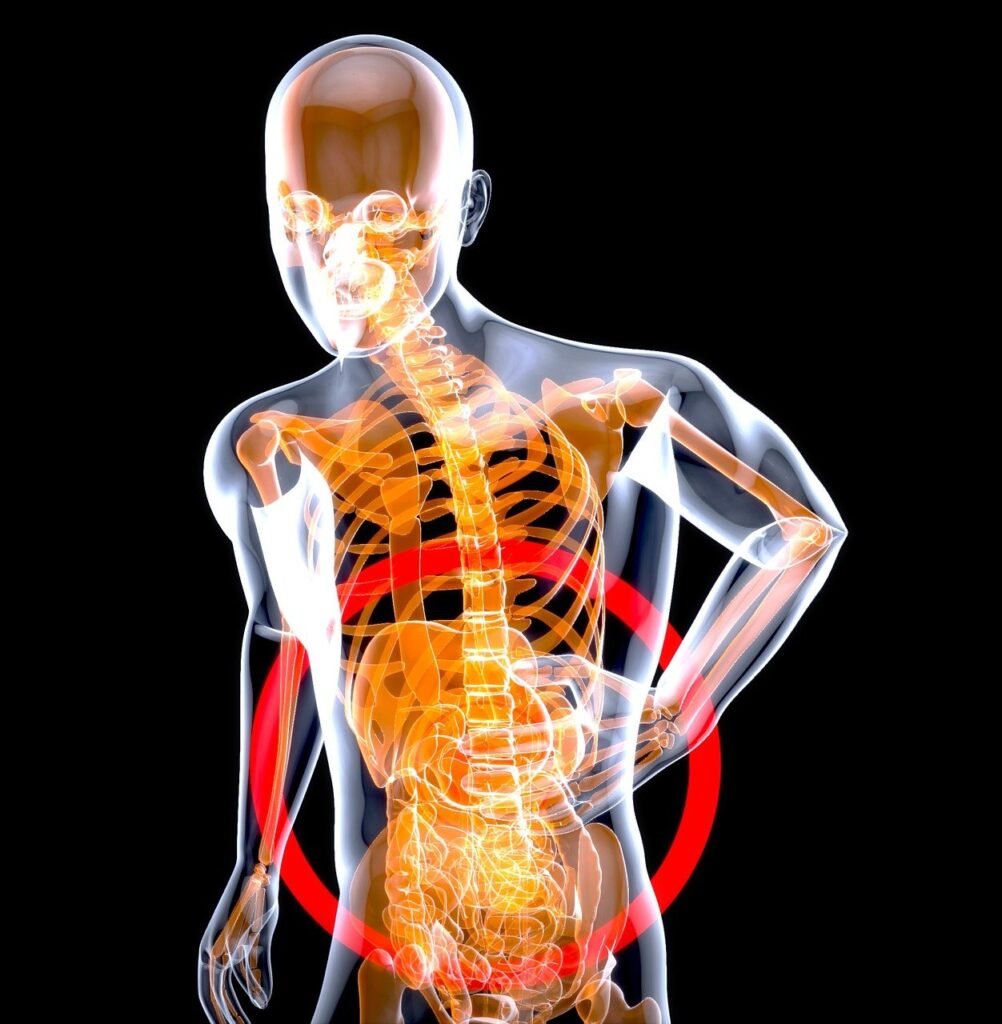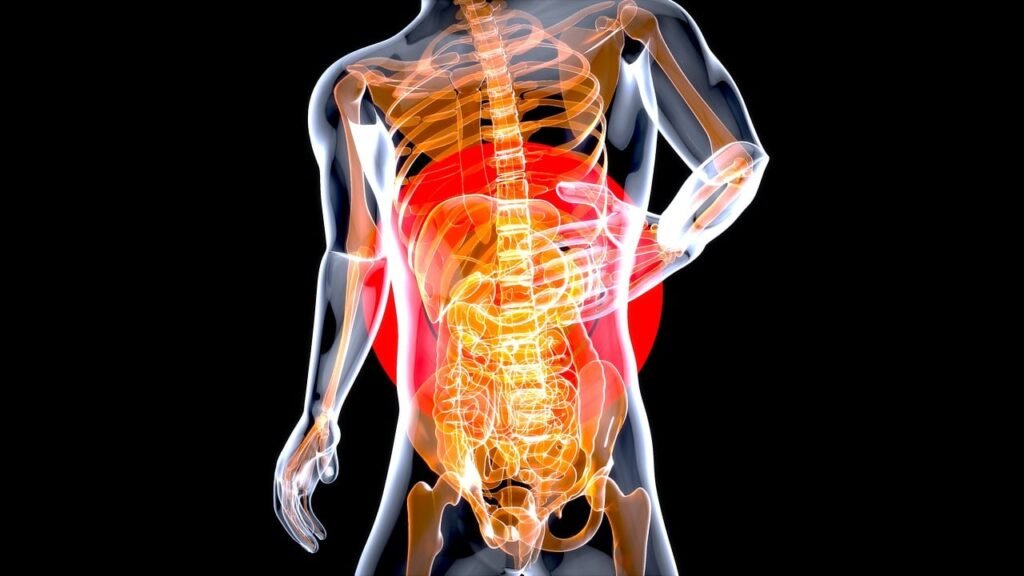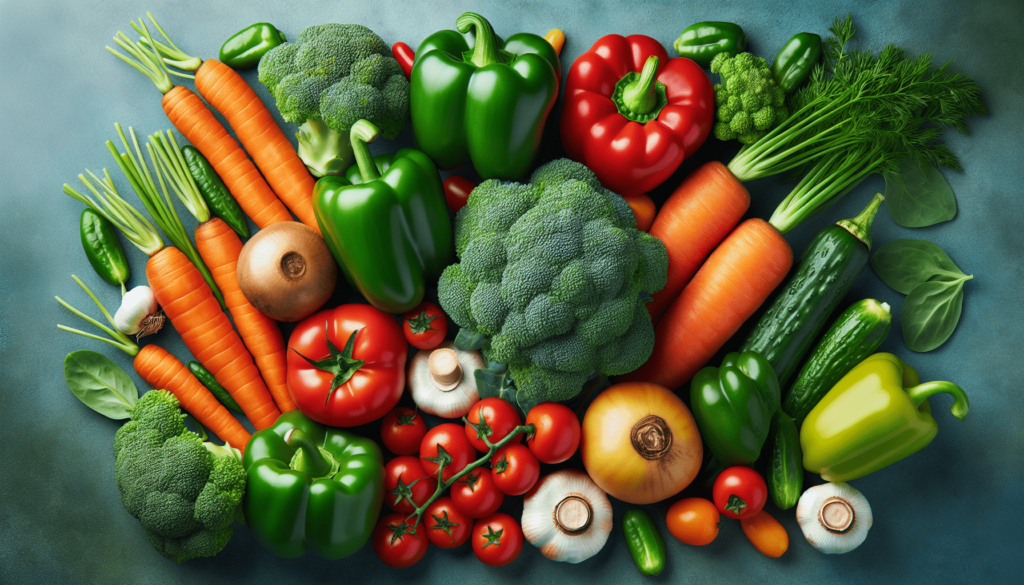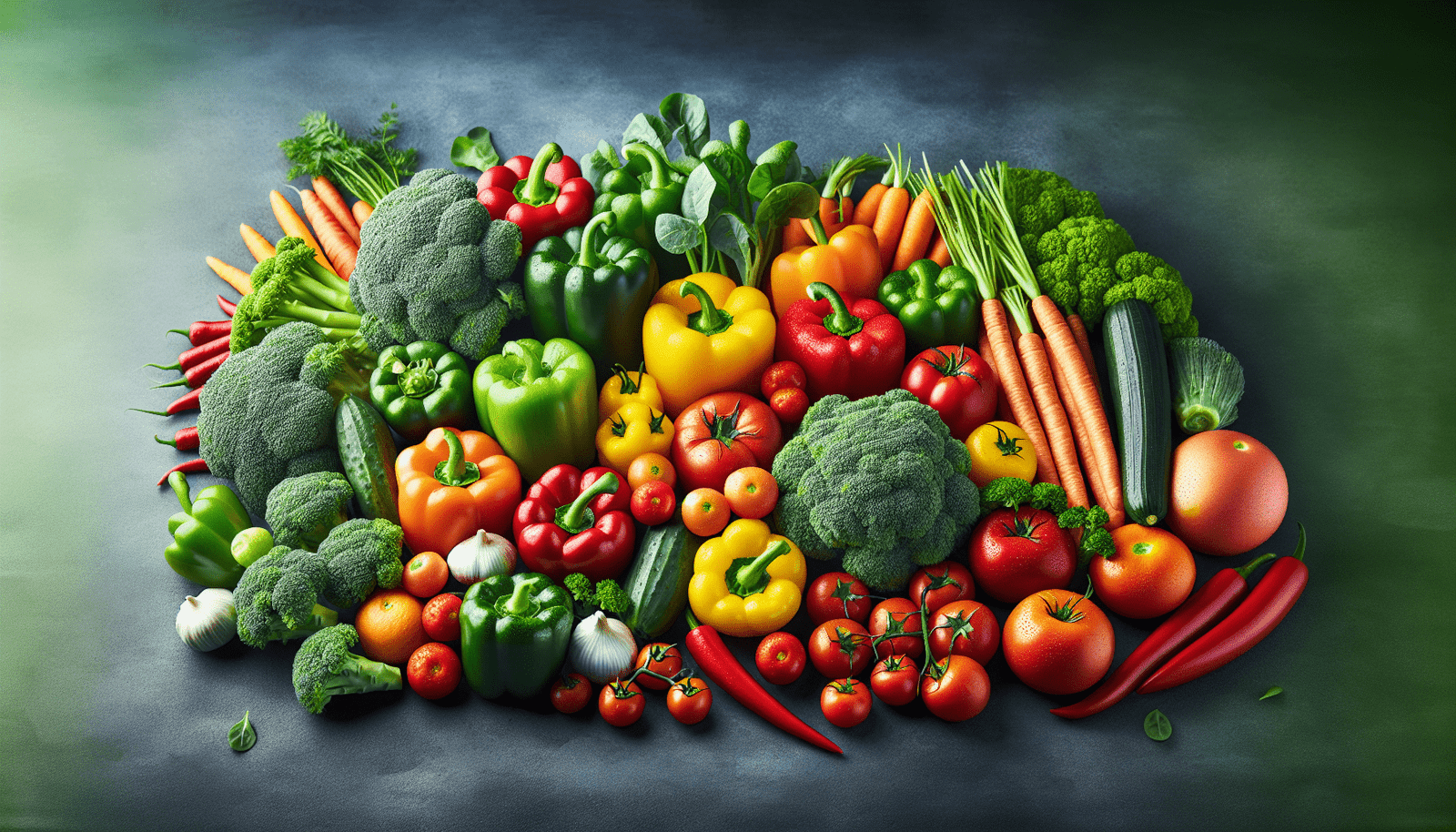Welcome to a fascinating exploration of the connection between vegetables and your gut health! In this article, we will delve into the ways in which consuming vegetables can impact the movement of your intestines and the overall digestion process. By understanding how vegetables affect gut motility and digestion, you can make informed choices about your dietary habits to promote a healthy and happy gut. Get ready to discover the wonderful benefits that vegetables can bring to your digestive system! How do Vegetables Affect Gut Motility and Digestion?
Have you ever wondered how vegetables impact your gut health and digestion? Well, wonder no more! In this article, we will delve into the fascinating world of vegetables and their effects on gut motility and digestion. So, grab a cup of tea, sit back, and let’s dive into this vegetable-filled discussion!
The Importance of Gut Health
Before we dive into how vegetables affect gut motility and digestion, let’s first understand why gut health is so crucial. Your gut, also known as the gastrointestinal tract, is home to billions of bacteria that play a vital role in your overall health. A healthy gut is essential for proper digestion, nutrient absorption, immune function, and even mood regulation.
Importance of Gut Bacteria
Your gut is home to trillions of bacteria, both good and bad. The balance of these bacteria is crucial for maintaining optimal gut health. Good bacteria help with digestion, nutrient absorption, and even help protect your gut lining from harmful pathogens. On the other hand, an imbalance of bacteria can lead to digestive issues, inflammation, and other health problems.
Now that we understand the importance of gut health, let’s explore how vegetables play a significant role in maintaining a healthy gut.
Fiber: The Gut-Healthy Nutrient in Vegetables
One of the main reasons why vegetables are so beneficial for gut health is their high fiber content. Fiber is a type of carbohydrate that your body can’t digest, but it plays a crucial role in keeping your gut healthy and happy.
Types of Fiber
There are two main types of fiber: soluble fiber and insoluble fiber. Soluble fiber dissolves in water to form a gel-like substance in your gut, while insoluble fiber does not dissolve and adds bulk to your stool. Both types of fiber are essential for gut health and digestion.
Vegetables are an excellent source of both soluble and insoluble fiber, making them an essential part of a gut-healthy diet.

This image is property of pixabay.com.
Vegetables and Gut Motility
Gut motility refers to the movement of food through your gastrointestinal tract. Proper gut motility is crucial for healthy digestion, as it allows food to move efficiently through your system and be properly digested and absorbed.
Importance of Gut Motility
When food moves too slowly or too quickly through your gut, it can lead to digestive issues such as constipation, diarrhea, bloating, and even nutrient malabsorption. Maintaining optimal gut motility is essential for overall gut health and digestion.
Vegetables are rich in fiber, which helps promote healthy gut motility by adding bulk to your stool and stimulating the muscles in your intestines to contract and move food along.
Vegetables and Digestive Enzymes
Digestive enzymes are proteins that help break down food into smaller molecules that your body can absorb. Without these enzymes, your body would struggle to digest nutrients properly, leading to digestive issues and nutrient deficiencies.
Types of Digestive Enzymes
There are several types of digestive enzymes, each with a specific role in breaking down different nutrients. Some examples include amylase, which breaks down carbohydrates, lipase, which breaks down fats, and protease, which breaks down proteins.
Vegetables contain natural enzymes that can help support your body’s digestive processes. For example, pineapple contains bromelain, an enzyme that aids in protein digestion. Including enzyme-rich vegetables in your diet can help support healthy digestion.

This image is property of pixabay.com.
Fermentable Fibers in Vegetables
Some vegetables contain fermentable fibers, which are a type of fiber that can be fermented by the bacteria in your gut. Fermentable fibers play a crucial role in supporting the growth of beneficial bacteria in your gut, which can have a positive impact on your gut health.
Benefits of Fermentable Fibers
Fermentable fibers help fuel the growth of beneficial bacteria in your gut, such as Bifidobacteria and Lactobacilli. These bacteria play a crucial role in maintaining a healthy gut microbiome, which is essential for overall gut health and digestion.
Including fermentable fiber-rich vegetables in your diet, such as onions, garlic, leeks, and asparagus, can help support the growth of beneficial bacteria in your gut and promote a healthy gut microbiome.
Anti-inflammatory Properties of Vegetables
Chronic inflammation in the gut can lead to digestive issues, such as inflammatory bowel disease (IBD), irritable bowel syndrome (IBS), and leaky gut syndrome. Vegetables are rich in antioxidants and anti-inflammatory compounds that can help reduce inflammation in the gut and support overall gut health.
Anti-inflammatory Compounds in Vegetables
Many vegetables contain anti-inflammatory compounds, such as flavonoids, polyphenols, and carotenoids. These compounds have been shown to help reduce inflammation in the gut and support a healthy gut microbiome.
Including a variety of colorful vegetables in your diet can help reduce inflammation in the gut and support overall gut health. Some examples of anti-inflammatory vegetables include berries, leafy greens, turmeric, and ginger.

This image is property of pixabay.com.
Vegetables and Gut Permeability
Leaky gut syndrome, also known as increased intestinal permeability, occurs when the lining of your gut becomes damaged, allowing harmful substances to leak into your bloodstream. This can lead to inflammation, autoimmune reactions, and other health issues. Vegetables play a crucial role in supporting gut health and reducing gut permeability.
Nutrient-Dense Vegetables
Vegetables are rich in vitamins, minerals, antioxidants, and other essential nutrients that support gut health and promote a healthy gut lining. Nutrient-dense vegetables, such as kale, spinach, broccoli, and sweet potatoes, provide your gut with the nutrients it needs to maintain a healthy gut lining and reduce gut permeability.
Including a variety of nutrient-dense vegetables in your diet can help support gut health, reduce gut permeability, and protect your gut lining from damage.
Tips for Including More Vegetables in Your Diet
Now that we’ve explored how vegetables affect gut motility and digestion, let’s discuss some tips for including more vegetables in your diet. Eating a variety of vegetables is essential for optimal gut health and overall well-being.
Tips for Increasing Vegetable Intake
- Start your day with a vegetable-filled smoothie or omelet.
- Snack on raw vegetables with hummus or guacamole.
- Include a side salad or vegetable dish with each meal.
- Experiment with different cooking methods, such as roasting, steaming, or grilling.
- Try new vegetables you’ve never tried before to expand your palate and nutrient intake.
By incorporating more vegetables into your diet, you can support your gut health, improve digestion, and boost your overall well-being.
In conclusion, vegetables play a crucial role in supporting gut motility and digestion. Their high fiber content, digestive enzymes, fermentable fibers, anti-inflammatory properties, and ability to support gut permeability make them an essential part of a gut-healthy diet. By including a variety of vegetables in your meals, you can promote a healthy gut microbiome, reduce inflammation, and support optimal gut health. So, next time you’re at the grocery store, be sure to load up on colorful, nutrient-rich vegetables to support your gut health and overall well-being. Your gut will thank you!


